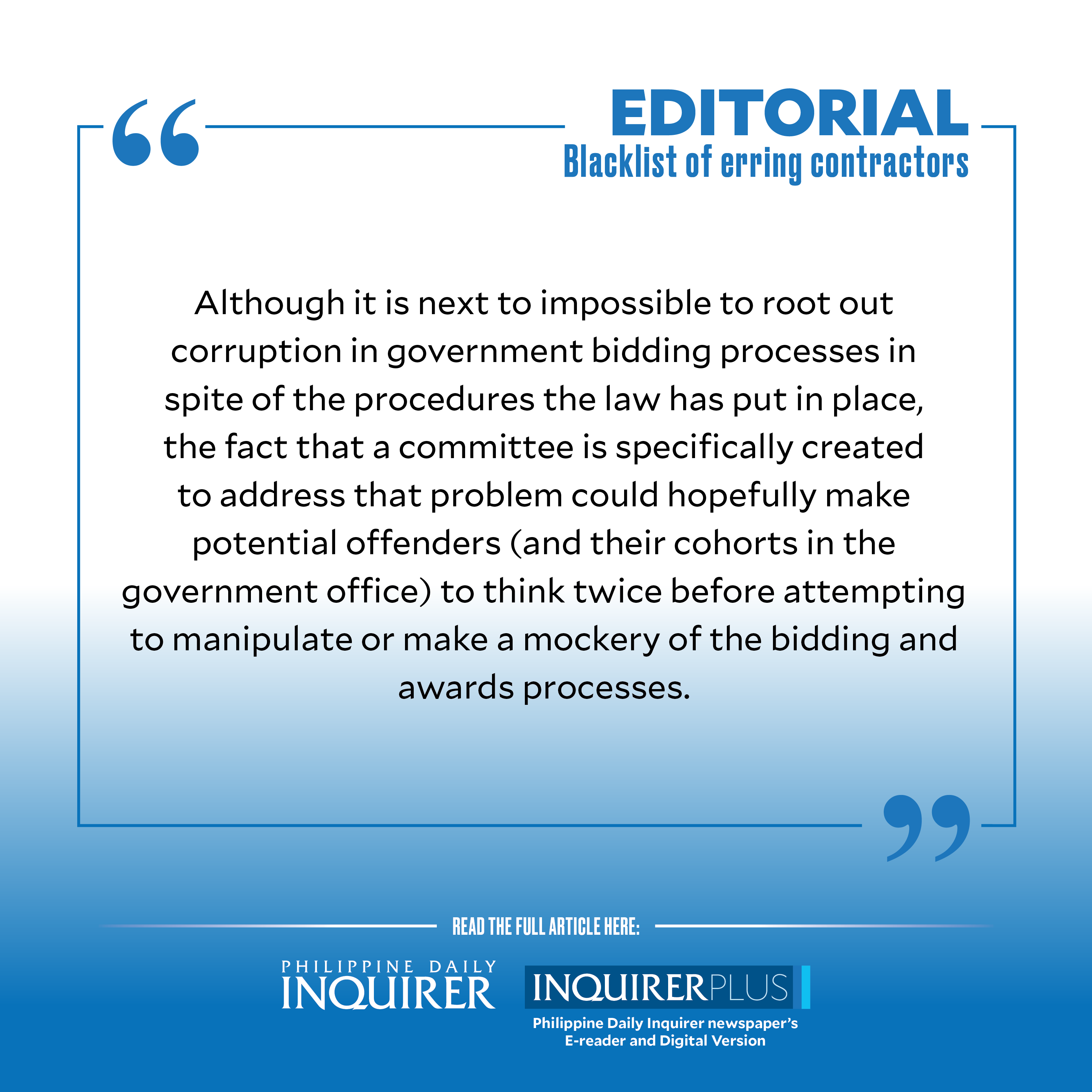
It’s not going to be business as usual for contractors of the Department of Agriculture (DA).
In a recent order, the DA announced that it will create a committee that would look into complaints on the commission of offenses or violations during competitive bidding and contract implementation by contractors, manufacturers, suppliers, and consultants of the DA and its bureaus and attached agencies.
Upon receipt of the complaint, the committee shall conduct the proper investigation to determine its veracity. Thereafter, it shall decide whether or not to recommend the suspension or withdrawal of the contractor and the forfeiture of its bid security.
If blacklisted, the erring contractor shall, pursuant to existing regulations, be barred from participating in future bidding for a given period unless later delisted.
With a budget of P167.5 billion in 2024 to fund food production, agricultural support, fertilizer assistance, and other related programs, the DA is fertile ground for businesses that want to have a piece of its budgetary pie.
Competitive bidding
To ensure that the government gets the best price or incurs the least cost possible without sacrificing quality in the procurement of goods and services from the private sector, the law requires competitive bidding.
That procedure may be dispensed with only in well-defined emergency situations that may later be audited by government auditors to determine the validity of that action.
Although bidders in government projects are required to act independently from each other or make their bids based on their respective capabilities, it is common knowledge that some bidders agree among themselves to, among others, make their bids show apparent differences in prices or scope of services, withdraw from a bid to limit the choice of bidders, or deliberately be noncompliant with the terms of reference to allow a pre-arranged bidder to win the bid.
The latter scheme is resorted to so all the bidders get a chance to win a bid. It’s a classic case of “you scratch my back, I’ll scratch yours.”
Manipulative and deceptive acts
These manipulative and deceptive acts are known to the members of bids and awards committees. For the right price, they can look the other way or do something that would legitimize or justify errors in compliance with the bid documents.
And because the winning bidder has to pay “lubrication fees” (or give something to the boys) that cannot be recovered from the awarded bid price, the only way for that bidder to recover that additional cost is to covertly violate the terms and conditions of the contract or comply with them in the least effective way without attracting attraction.
By creating that committee and ordering it to submit its recommendations within 30 days from receipt of a complaint, the DA is sending a strong message to its contractors that they risk losing their contracts or being blacklisted if they fail to scrupulously comply with the bidding process or the terms and conditions of awarded bids.
Other government offices that are similarly situated, i.e., are obliged to engage with private businesses to enable them to meet their mandated duties and responsibilities, can take a leaf from the DA’s action.
Although it is next to impossible to root out corruption in government bidding processes in spite of the procedures the law has put in place, the fact that a committee is specifically created to address that problem could hopefully make potential offenders (and their cohorts in the government office) to think twice before attempting to manipulate or make a mockery of the bidding and awards processes.
Political pressure
No doubt, there are risks involved in cracking the whip on unscrupulous contractors and blacklisting them from future bidding for government projects.
There is no dearth of lawyers who will gladly assist losing or blacklisted bidders in going to court to question the validity of that action or compel the government office concerned to act in its favor.
Or for the same purpose, file a complaint with the Ombudsman for alleged violation of the anti-graft and corruption laws and engage in a media campaign to put the officials concerned in a bad light.
If that bidder happens to be a close associate or strong financial supporter of a politically influential person or a member of Congress, it is not far-fetched that political pressure would be made to bear on the government office through the threat of a congressional investigation or reduction of its budget come budget deliberations time.
It would take a lot of guts and political will for the head of a government office to stand his or her ground when any of those threats arises.

